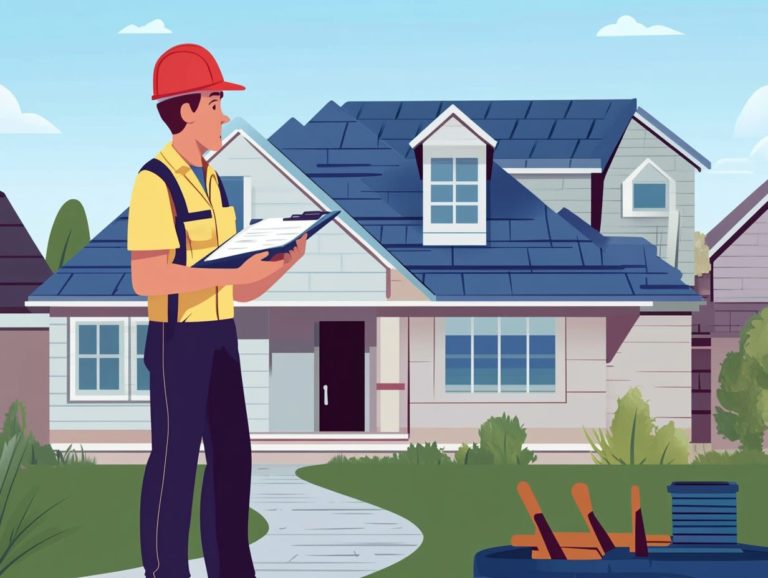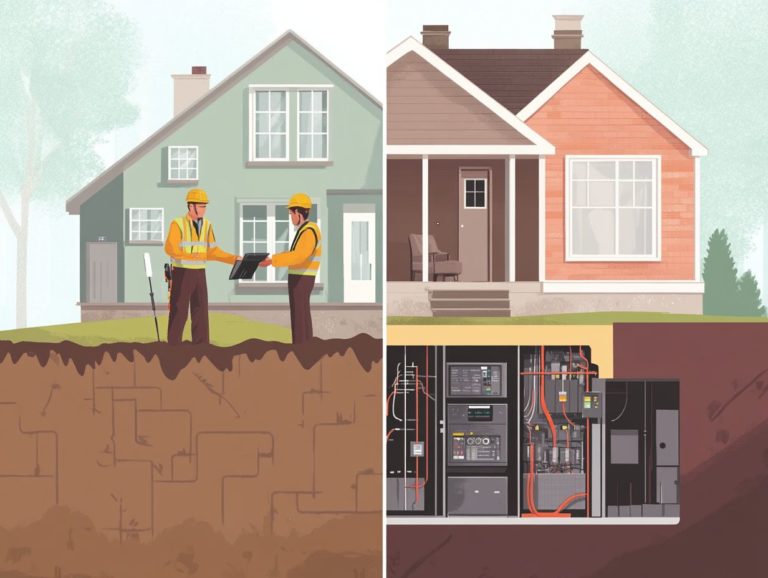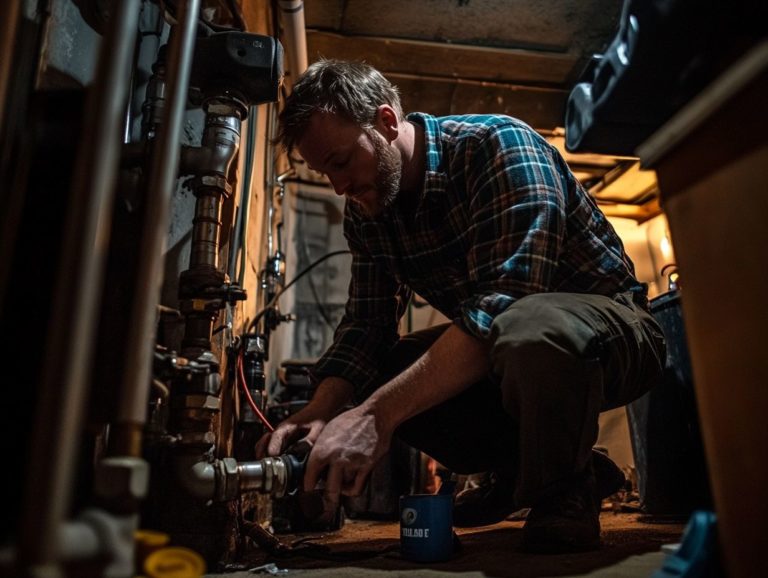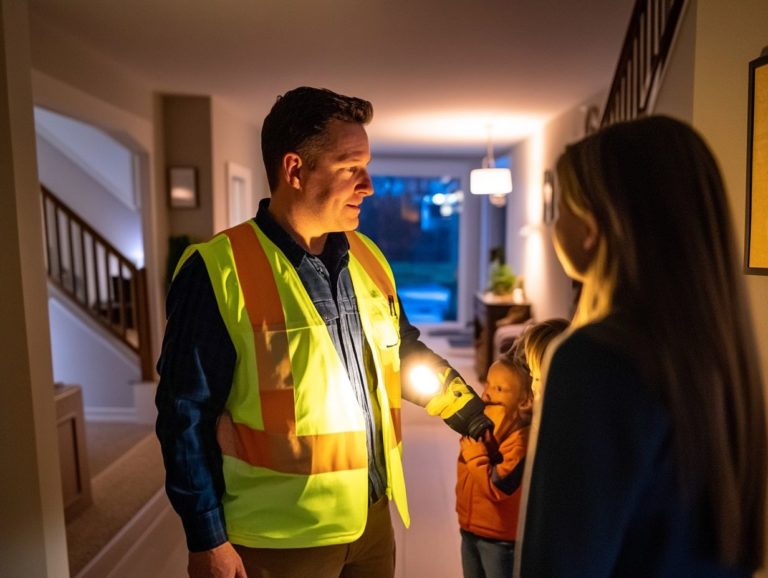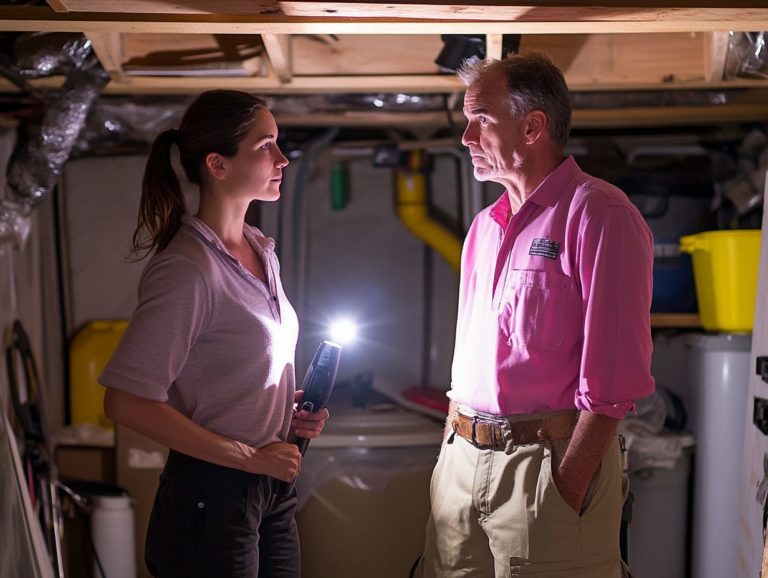How to Make the Most of Your Home Inspection
When you embark on the journey of buying or selling a home, grasping the purpose and process of a home inspection becomes paramount.
This article encompasses all the essential information you need from what to anticipate during the inspection to deciphering the report and taking subsequent actions.
Whether you find yourself as a first-time buyer or a seasoned seller, you ll uncover valuable tips to enhance the advantages of your home inspection, ultimately facilitating a smoother transaction.
Immerse yourself in this knowledge to empower your real estate experience!
Contents
Key Takeaways:
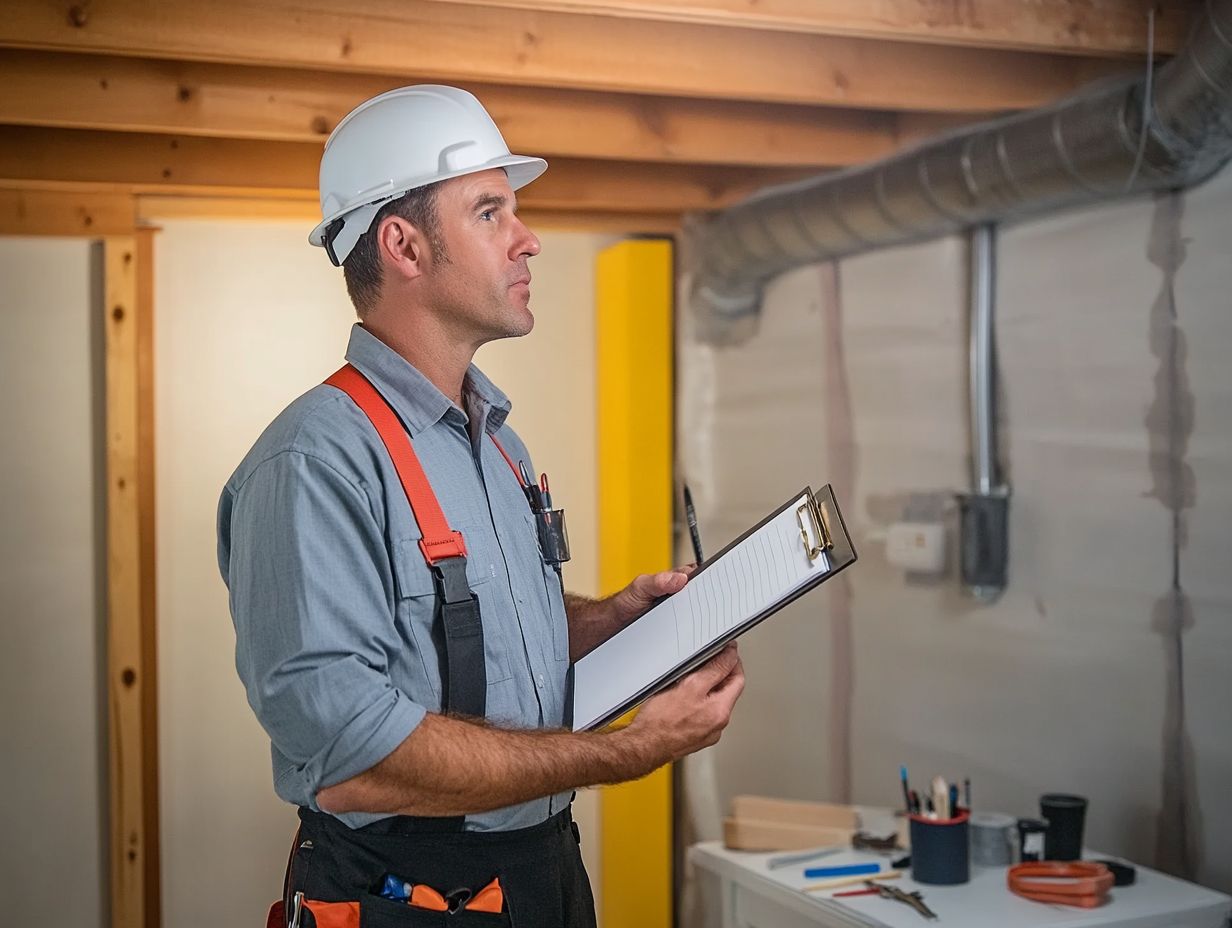
Understand the importance of a home inspection to protect your investment.
Prepare for the inspection by cleaning and organizing your home, and making necessary repairs.
After the inspection, negotiate repairs and address any issues found to ensure the value of your home is maximized.
Understanding the Purpose of a Home Inspection
A home inspection is an essential milestone in the home buying and selling journey, carefully checking the property s condition and uncovering any potential issues that might impact its value or safety.
By enlisting the expertise of a professional home inspector, you can gain valuable insights into the home’s structural integrity, heating, ventilation, and air conditioning system (HVAC), roofing, and plumbing systems. Additionally, knowing how to prepare for a home inspection can enhance your understanding of these critical areas.
Sellers can tackle necessary repairs to boost their property’s appeal before hitting the market.
This comprehensive evaluation culminates in a detailed inspection report that highlights safety hazards, foundation concerns, and other defects, enabling you to make informed decisions throughout the process.
What is a Home Inspection and Why is it Important?
A home inspection is your opportunity for a thorough evaluation of a property’s condition, conducted by a skilled professional home inspector. This process aims to uncover potential issues that could pose safety hazards.
During this meticulous assessment, various essential aspects are covered. You’ll want to pay close attention to the structural integrity of the home.
This includes scrutinizing critical components like the foundation, roof, and walls for any signs of distress or deterioration.
The inspector will also evaluate the electrical and plumbing systems, making sure they function efficiently and comply with necessary safety standards.
Be aware that common home defects such as outdated wiring, leaky pipes, or insulation deficiencies can significantly impact a property’s value and livability. That’s why a detailed inspection report is paramount.
Not only does it highlight these findings, but it also serves as a powerful tool in negotiations, potentially influencing repair requests and guiding both buyers and sellers through the intricate real estate process.
Preparing for a Home Inspection
Getting ready for a home inspection is vital! Here are steps that can make your day run smoothly.
Whether you decide to undertake a DIY home inspection or enlist the services of a qualified professional, taking the time to prepare for a home inspection will undoubtedly maximize the effectiveness of the assessment.
Steps to Take Before the Inspection
Before the inspection, you’ll want to take some proactive steps that might include conducting a DIY home inspection and preparing a comprehensive checklist. This will help you identify potential issues and elevate the overall condition of your property, ensuring you know how to prepare for your home inspection.
First things first: make sure all areas of your property are easily accessible. This means unlocking gates and moving any furniture or other obstacles that might block access to crawl spaces, attics, or basements.
Don’t forget to clear pathways both inside and outside your home, ensuring everything is open and inviting.
Next, it s wise to conduct a thorough visual check for any obvious maintenance issues. Look out for leaky pipes, signs of damp or mold, and electrical problems like exposed wiring or malfunctioning outlets.
Addressing these concerns before the inspection can save you time and prevent potential red flags from surfacing.
Gathering the necessary documentation such as previous inspection reports, warranties for appliances, and details of recent repairs will provide valuable context for the inspector. This preparation will not only make the process smoother but also facilitate a more accurate assessment of your property.
What to Expect During a Home Inspection
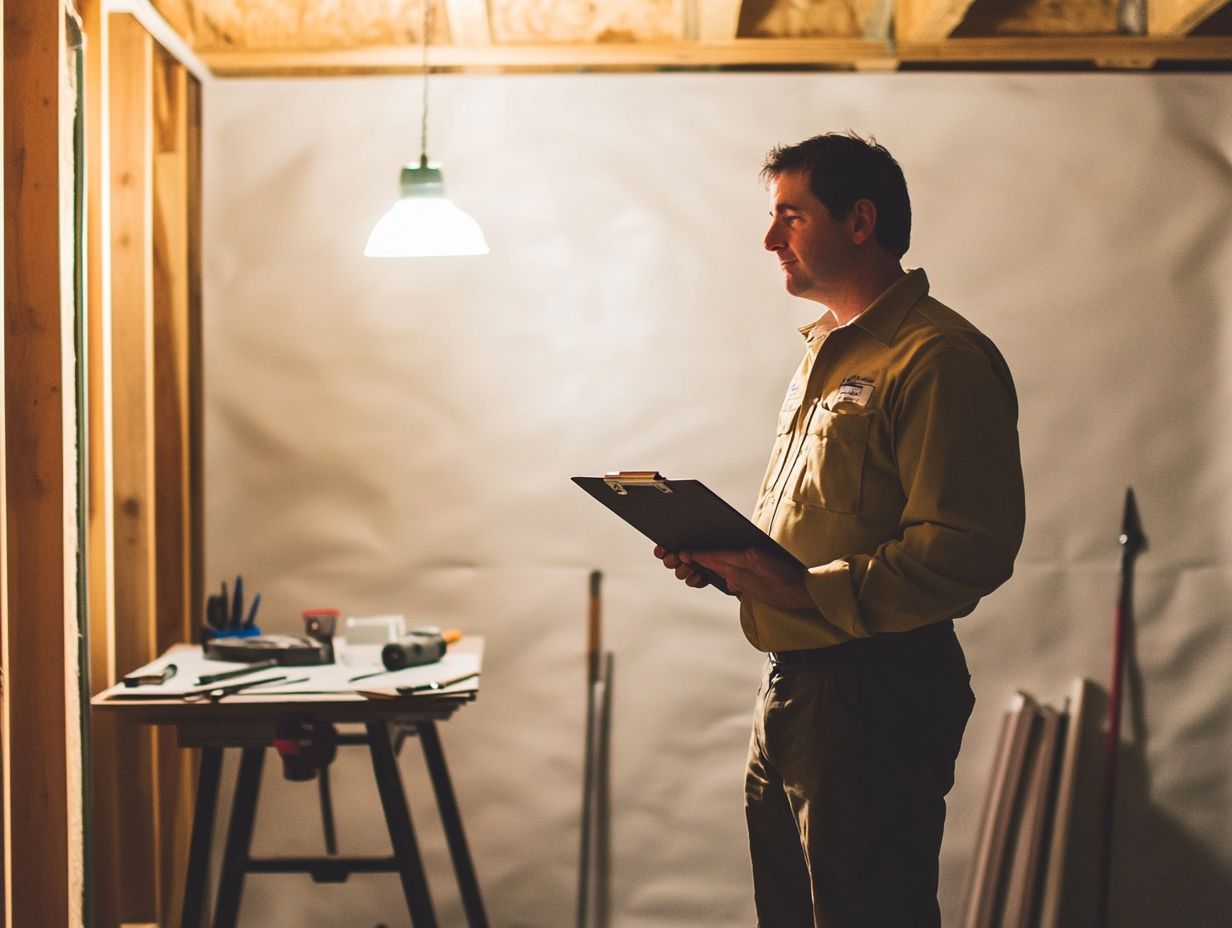
During a home inspection, expect a careful check of various home systems and components.
The inspection focuses on key areas, including the HVAC (heating, ventilation, and air conditioning) system, plumbing, and structural elements. This thorough evaluation typically takes a few hours, depending on your property’s size and condition.
Inspection Process and Areas Covered
The inspection involves a careful check of various areas within the property. Inspectors focus on important components like the roof, attic, crawl space, and essential home systems, such as electrical and plumbing.
Inspectors look for signs of wear, damage, or potential hazards that could affect safety. For example, when assessing the roof, they check for missing shingles, leaks, or structural issues. In the attic, they evaluate moisture levels and insulation, while the crawl space may reveal concerns about mold or pests.
Identifying safety hazards is crucial, as these findings can affect the home’s overall value and marketability. Addressing big problems early can help you avoid costly repairs and health risks later.
Interpreting the Inspection Report
Whether you’re a home buyer or seller, understanding the inspection report is vital. This document highlights potential issues found during the inspection and provides insights into necessary repairs along with the inspector s recommendations.
Understanding this report can significantly influence your next steps.
How to Understand and Address Issues Found
To tackle the issues in your inspection report, evaluate the identified defects and assess repair costs and the severity of any major problems.
Start by categorizing issues based on urgency and differentiate between minor flaws and serious structural concerns that need immediate attention.
Next, gather estimates from contractors to understand repair costs. This will provide a clearer picture of the financial implications. When negotiating repairs with sellers, be ready to share your findings and suggest reasonable solutions or discounts based on these estimates.
Consider creating a maintenance plan to manage ongoing upkeep. Keeping your home in top shape is vital!
Taking Action After the Inspection
After the inspection, take these strategic steps:
- Negotiate repairs with the seller,
- Understand the inspection contingencies,
- Decide your next moves as a home buyer based on the inspection findings.
Negotiating Repairs and Next Steps
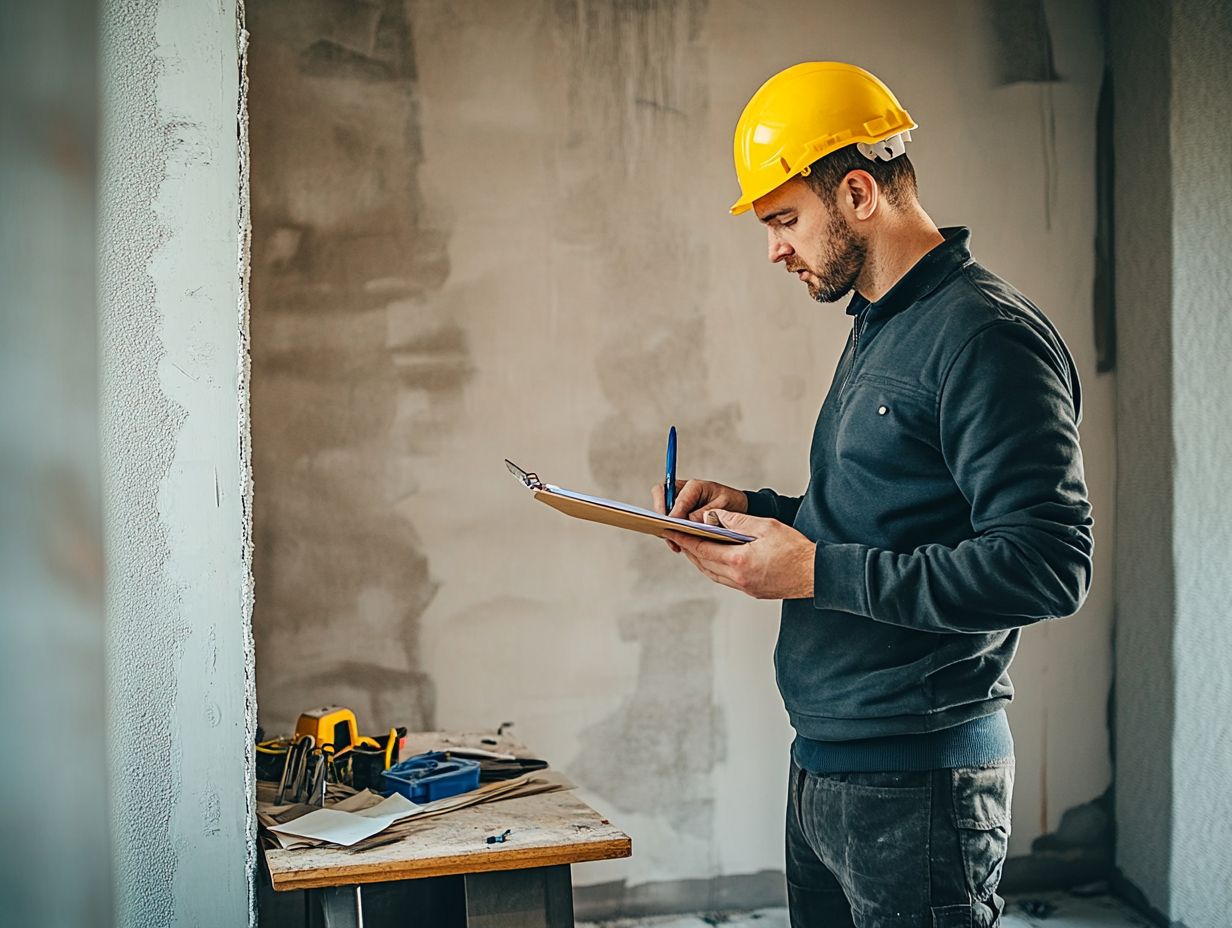
Negotiating repairs after a home inspection is a crucial moment in your home buying journey. Clear communication about repair requests, contingencies, and potential repair costs is essential.
This stage is crucial for the rest of your buying journey. Presenting the inspection findings constructively can help sellers understand the need for repairs.
When proposing requests, balance your expectations with the property’s overall condition. Stay open to discussion to foster collaboration, increasing the chances of reaching a mutually beneficial agreement.
Maximizing the Value of Your Home Inspection
To truly maximize the value of your home inspection, grasp the results and adopt effective maintenance tips and strategies. For detailed insights, check out how to make the most of your home inspector’s expertise.
Doing so will enhance your home’s value and ensure its longevity for years to come.
Ready to take the next step? Schedule your home inspection today or consult with professionals for more advice!
Tips for Making the Most of Your Inspection Results
To capitalize on your inspection results, make a plan for home maintenance and repairs. For detailed guidance, check out how to prepare for a successful home inspection. This enhances your property’s value and addresses any identified issues.
Create a maintenance schedule based on the findings. Prioritize repairs by urgency to manage critical matters promptly.
Learning about home systems is beneficial. It highlights the importance of preventive maintenance.
This proactive approach creates a safer and more efficient home. You’ll enjoy greater comfort and protect your investment over time.
Frequently Asked Questions
What is a home inspection and why is it important?
A home inspection is a thorough examination of a home’s condition and function by a professional inspector. It can uncover potential issues that may affect safety, value, and livability.
How do I prepare for a home inspection?
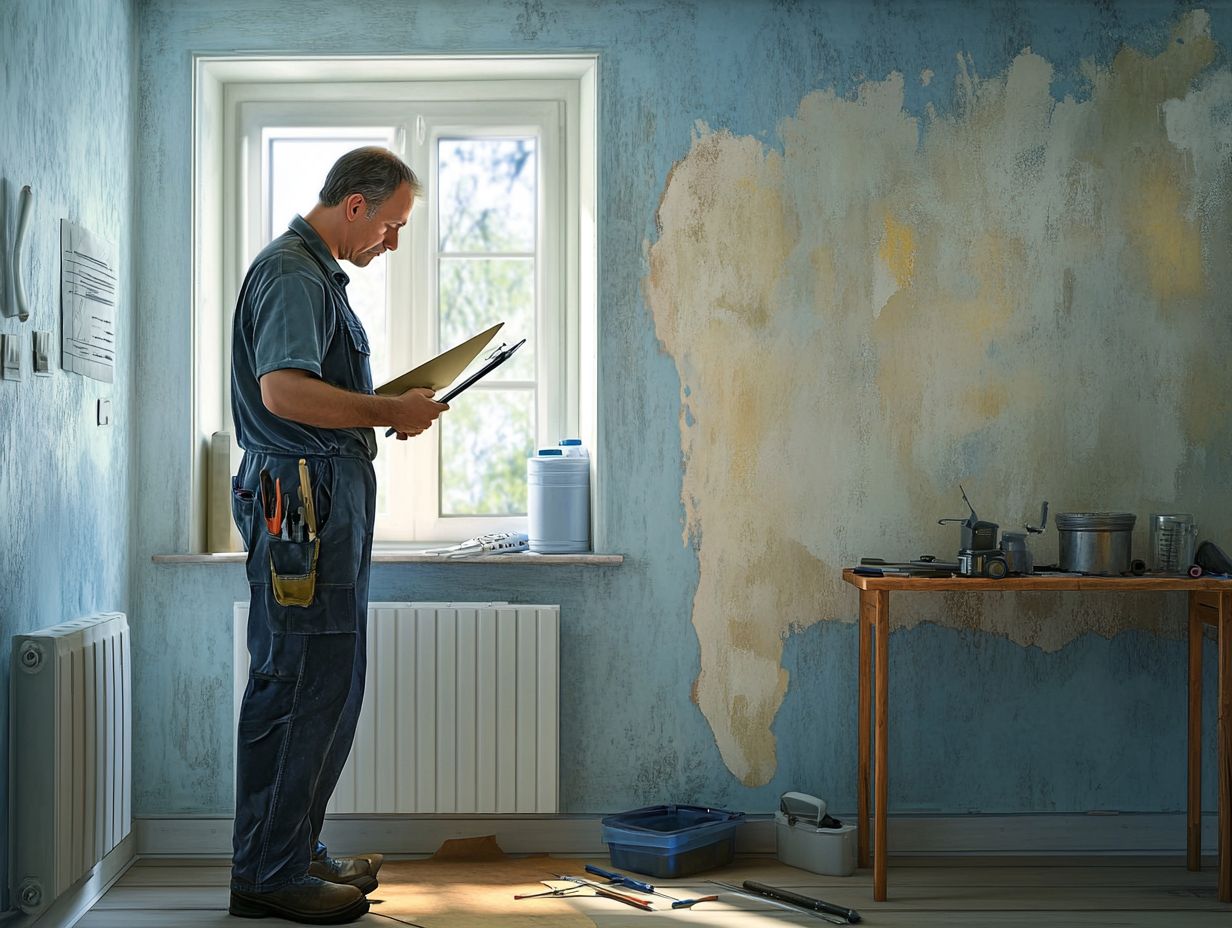
Prepare for your home inspection by decluttering and cleaning. To ensure everything goes smoothly, check out these tips for a successful home inspection day. Also, make sure all utilities are on and provide easy access to all areas.
Can I attend the home inspection?
Yes, attending is highly recommended. You’ll be able to ask questions and gain a better understanding of the home’s condition.
What should I do if the home inspection reveals issues?
If issues are found, discuss them with the inspector and your real estate agent. You can negotiate with the seller to address these issues or adjust the sale price.
Should I hire my own home inspector?
While not required, hiring your own inspector is a good idea. This ensures an unbiased evaluation and gives you peace of mind.
How can I use the home inspection report?
The home inspection report is a valuable reference for future maintenance and repairs. It can also be a bargaining tool during negotiations.

